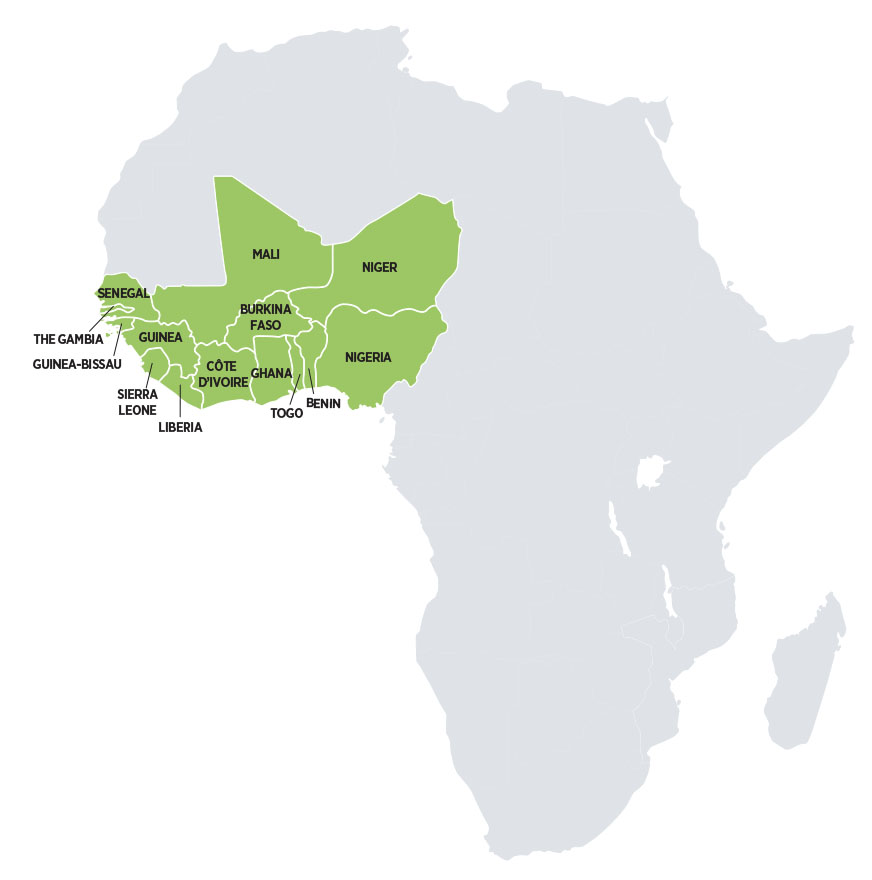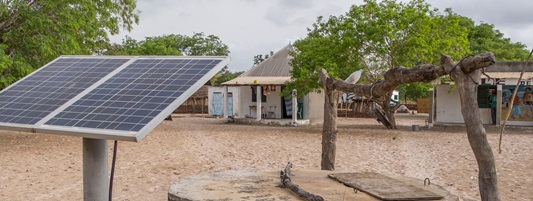Regional Initiatives
Contact us
Send a messageOverview
The West African region has a vast renewable energy potential sufficient to cover unmet power demand and achieve universal access to electricity while supporting the region’s transition to a low-carbon growth path. In July 2013 the Authority of Heads of State and Government of the Economic Community of West African States (ECOWAS) adopted the ECOWAS Renewable Energy Policy (EREP); this aims to increase the share of renewable energy in the region’s overall electricity mix to 35% in 2020 and 48% in 2030 (to 10% and 19%, respectively, excluding large hydro). Complementing the EREP is the ECOWAS Energy Efficiency Policy (EEEP), which aims to make available 2000 megawatts of power generation capacity through efficiency gains and ultimately double the rate of improvements in energy efficiency.
To support the creation of a regional power market, IRENA, in collaboration with the ECOWAS Centre for Renewable Energy and Energy Efficiency (ECREEE), West African Power Pool (WAPP), and ECOWAS Regional Electricity Regulatory Authority (ERERA), has initiated the West Africa Clean Energy Corridor (WACEC) initiative. Building on existing efforts in the region, including those of UEMOA, AfDB and other development partners such as GIZ and USAID, the WACEC will promote the development and integration of utility-scale renewable power in West African power systems.
Endorsed by the ECOWAS Energy Ministerial in December 2016 and building on the experience of the ACEC, the WACEC’s implementation plan is built on five key foundations:
- Zoning and Resource Assessment – to identify sites for renewable power generation in areas with high resource potential and suitable transmission routes;
- Long-Term Energy Planning Support to African countries, in the form of regional training workshops and power pool assessments and national capacity building programmes, to build countries capacity to handle energy planning processes and tools and to develop and regularly update a long-term energy sector plans (incl. at national and regional level).
- Enabling Frameworks for Investment – to open markets and reduce financing costs;
- Capacity Building – to plan, operate and maintain power grids and markets with higher shares of renewables-based electricity; and
- Public Information and Awareness Raising – to highlight how the corridor can provide secure, sustainable and affordable energy.
The report on Scaling up renewable energy deployment in Africa summarises the impact of IRENA's engagement with the continent.

Photo gallery
Past Events
-
24-27 November 2025 Entebbe, Uganda
Capacity Building on Geothermal Direct Use Applications
-
20-23 October 2025 Freetown, Sierra Leone
APRA Investment Forum 2025
-
15-18 September 2025 Mozambique
National consultation workshop on accelerating Mozambique’s energy transition










